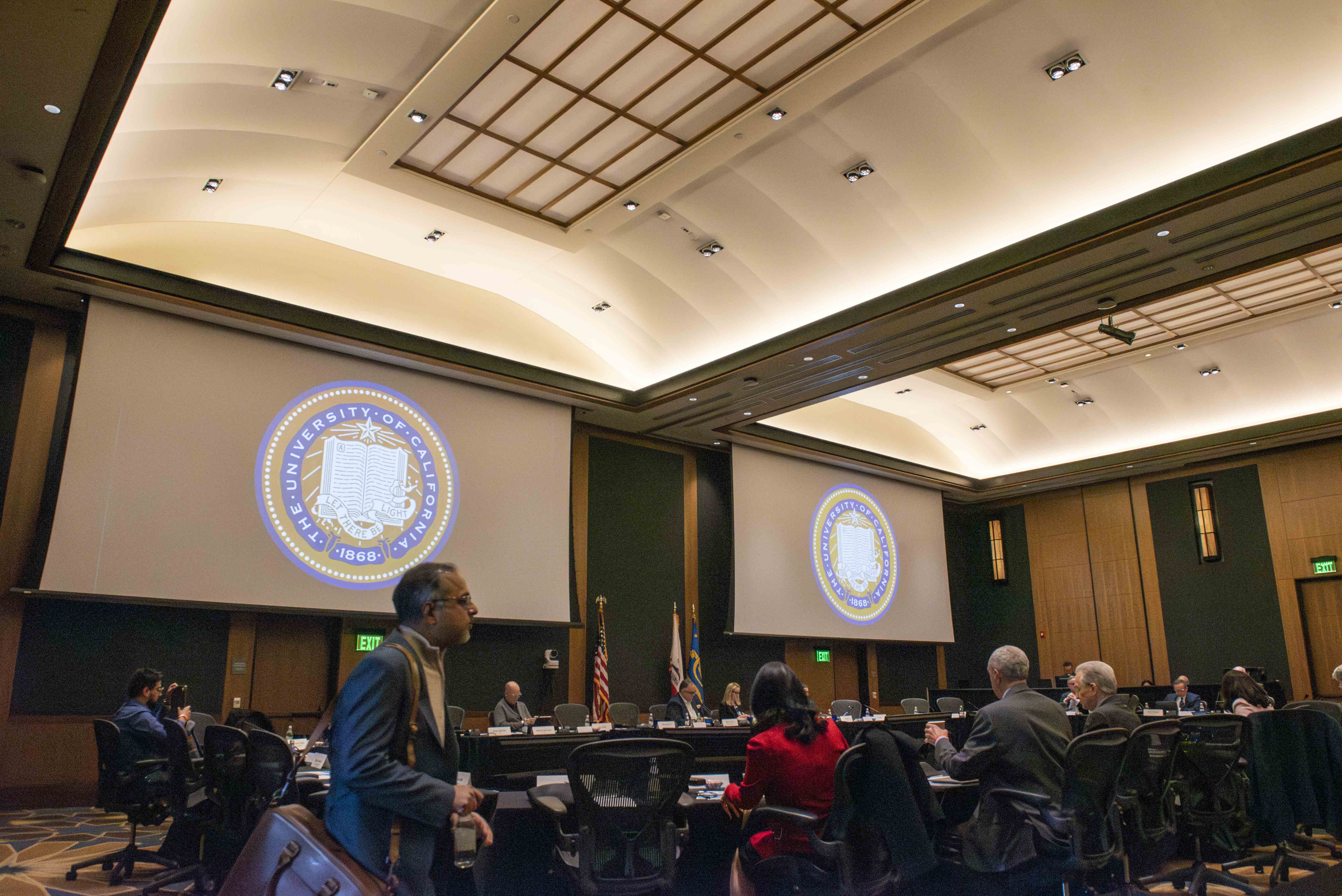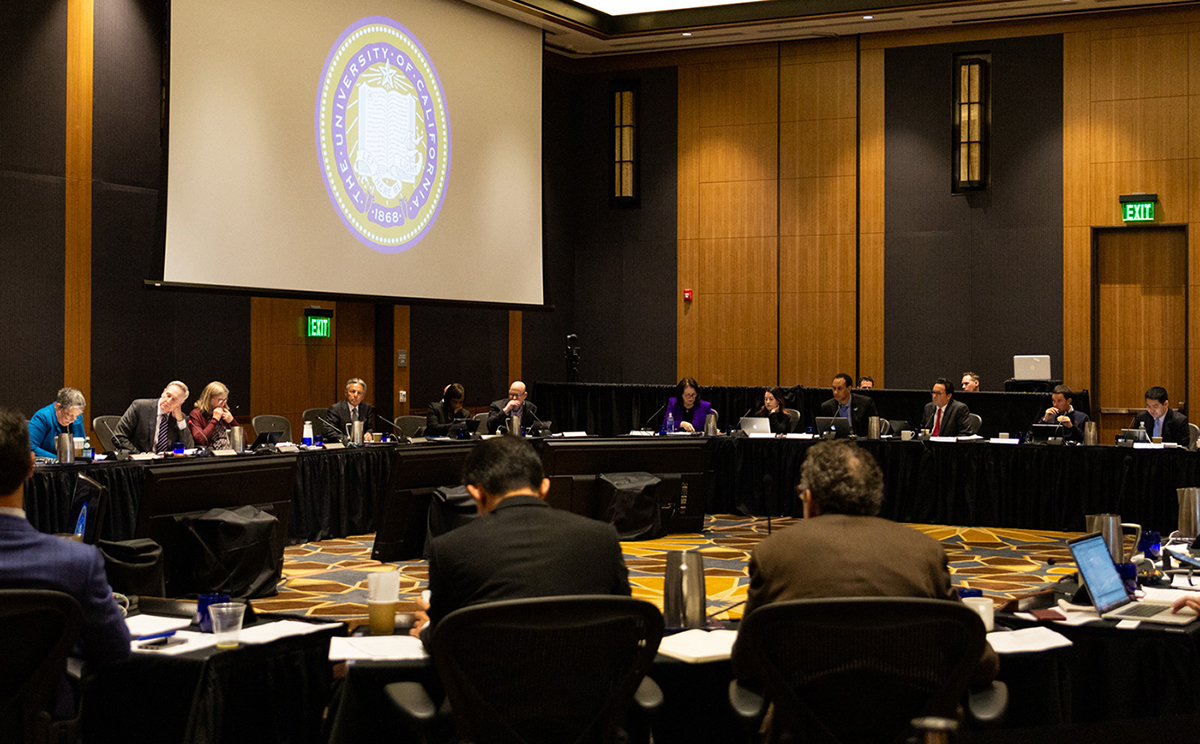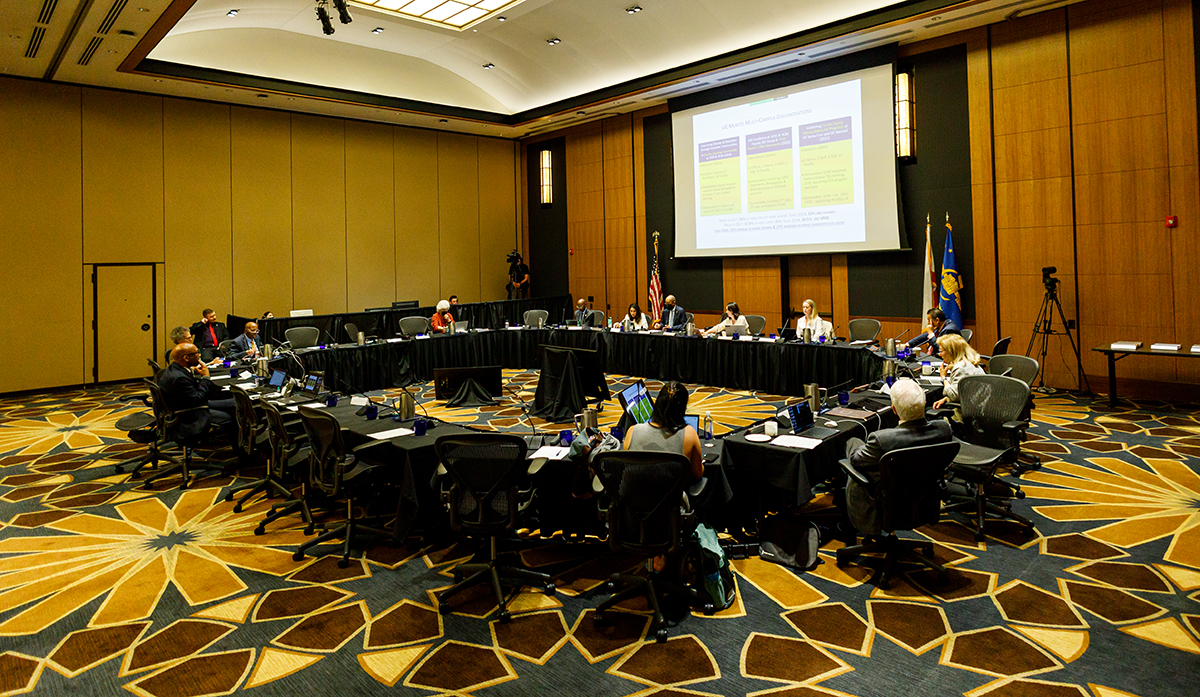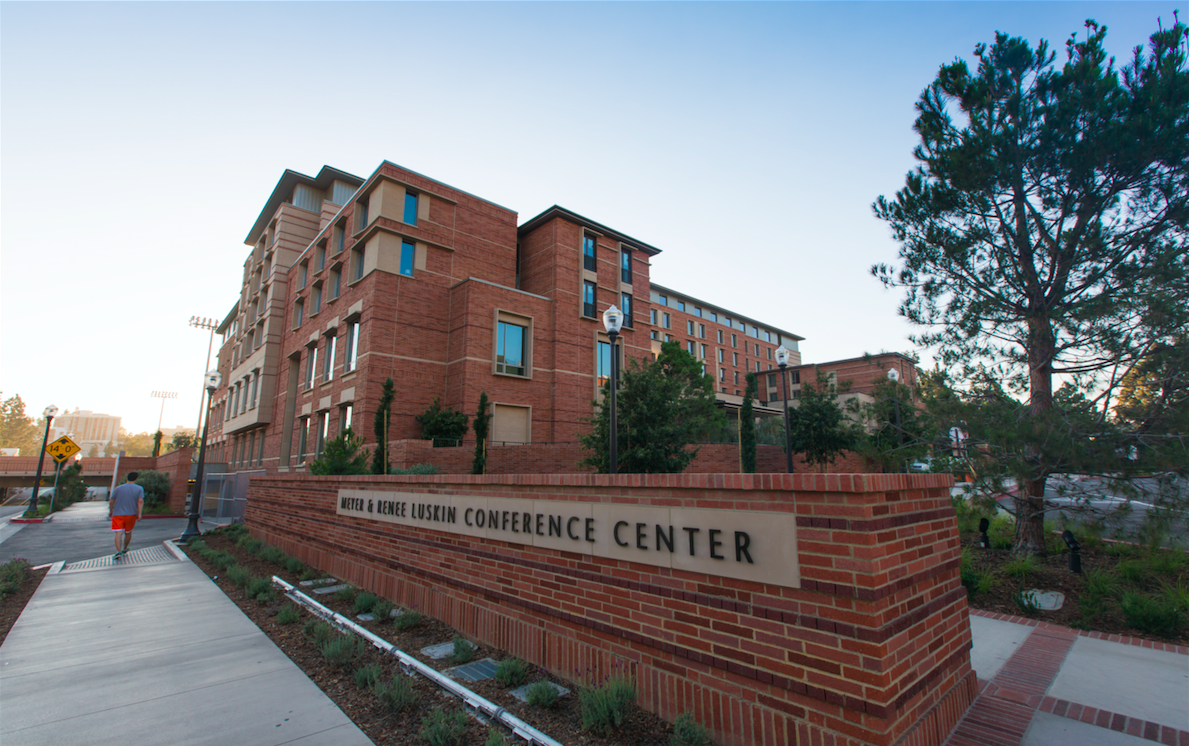UC Regents recap – Feb. 13-14

Pictured is the UC Board of Regents meeting Feb. 14 at the UCLA Meyer and Renee Luskin Conference Center. (Michael Gallagher/Daily Bruin)
By Abby Porter
Feb. 27, 2024 7:25 p.m.
The UC Board of Regents, the governing body of the University, met Feb. 13 and 14 at the UCLA Meyer and Renee Luskin Conference Center.
The Feb. 13 meeting of the Committee to Advise the President on the Selection of a Chancellor of the Los Angeles campus meeting was closed to the public. The regents took public comment, heard from the Health Services Committee and discussed Senate Regulation 630.E, which proposes an undergraduate “campus experience” requirement, during the Feb. 14 meeting.
During the public comment period, students and alumni called for the board to accept Social Security numbers issued under the California DREAM Act or the Deferred Action for Childhood Arrivals program for the purposes of the Free Application for Federal Student Aid.
There were also multiple calls from students – including those associated with the UC Divest Coalition – against BlackRock, a firm that invests in companies associated with the Israeli military.
Then Dr. David Rubin, the executive vice president of UC Health, briefed the Health Services Committee on a revised draft of the UC Health Strategic Framework, which is slated to be sent to the regents for approval later this year. In his briefing, Rubin emphasized investments in patient access and experience, improving health care equity via community programs in underserved regions and promoting inter-UC research.
Although he did not provide a specific technological proposal, Rubin suggested implementing more digitized patient management systems, or “digital front doors,” to make setting up UC Health primary care visits more accessible to students. He added that although primary care visits have decreased over the past five years, emergency room visits have increased by an average of 71% across all UC campuses over the same time period. Rubin attributed the increase to a lack of familiarity with the tiered health care system, the capacity of local ERs as compared to urgent care facilities, and the UC Student Health Insurance Plan’s low ER copay deductible amounts.
Dr. Brad Buchman, a UC Health medical director, continued discussion about emergency room visits in an executive summary about improving access to health care within the UC Student Health Insurance Plan system. Buchman added that the increased use of emergency services has cost the system an additional $24 million.
Rubin also discussed streamlining health care between the UC campuses to increase the efficiency of patient care and make UC SHIP more accessible, adding that the main problem is the lack of continuity among different institutions’ data systems.
Regent John Pérez urged the committee to consider implementing the Epic Electronic Health System, a system previously discussed by the regents that he said would streamline information between and within UC institutions.
The regents also discussed creating a new online program to make using the UC Health system easier for students to navigate. They also proposed putting up posters and flyers around University-owned residential communities and during student orientation to encourage students to sign up and use UC SHIP.
The regents ultimately vocally affirmed Rubin’s draft for the framework.
Later in the regents’ open session, the regents discussed the UC Academic Senate’s recommended Regulation 630.E, which proposes that all UC students must have a “campus experience” to earn their undergraduate degrees. Introduced last February, the regulation aims to prohibit entirely online degrees within the UC system by requiring students to take a certain number of units in person, according to its text.
Provost and executive vice president of academic affairs Katherine Newman, a member of the Joint Administration Faculty Task Force – which develops regulations for online education within the UC – said the task force convened for the first time this month and is working to ensure students enrolled in online courses have access to the same resources and quality of education as their on-campus peers. The task force is planning to hold a system congress May 1 and will get initial feedback on infrastructure for the online education it is planning to develop before that meeting, Newman said.
The regulation was met with mixed responses from the regents. UC Irvine chancellor Howard Gillman called for campus autonomy in the establishment of degree programs, with emphasis on the views of each individual campus’ faculty. Gillman also pointed to the Paul Merage School of Business at UC Irvine, whose online degree program was introduced by faculty as a successfully developed model for the system.
Regent Lark Park added that she thinks a ban on online education is too soon and too extreme.
Regent Hadi Makarechian said he thinks it is unfair to non-incarcerated students for the UC to continue offering online degrees to currently incarcerated students while creating an in-person requirement for students enrolled on campuses.
Pérez expressed support for the senate’s recommendation, adding that he thinks there is room for a variety of approaches to online education. However, he said he thinks the ultimate decision should be made by the regents rather than the academic senate.
Pérez also cautioned against online education as a “corridor” that might widen the socioeconomic opportunity gap between students. He added that while data indicates that first-generation students favor it for economic reasons, this might compromise the UC’s ability to deliver necessary services to them.
Regent Maria Anguiano added that lower debt and housing costs will be the main factors in students’ decisions to take in-person or online classes, which could change the culture of UC campuses and ultimately be exclusionary.
Park introduced motions, one to disapprove the senate recommendation for an in-person degree requirement and the other to reaffirm the autonomy of each campus to decide on its programs. The board moved to approve both motions.
The next regents meetings return to the board’s bimonthly schedule and will be held at UCLA from March 19 to 21.






